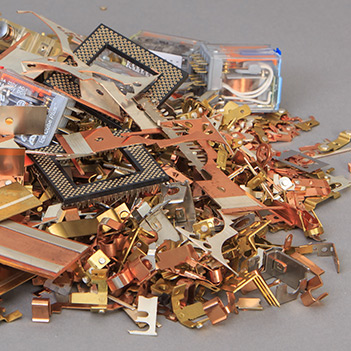Nigeria’s Guidelines for Exporting Precious Metal Scraps
Nigeria’s Guidelines for Exporting Precious Metal Scraps
Nigeria is the world’s leading producer of gold by volume. According to the Central Bank of Nigeria, total production was 28.2 tons in 2014. This makes up about 9% of the global gold production. They are also a major producer of silver, which they produce at 6 million ounces per year, making them the sixth-largest silver producer in the world.
Nigeria has been experiencing an increase in precious metal exports due to new recycling plants that have opened in recent years. The country’s guidelines for exporting precious metal scraps are regulated by their customs laws and contain information about what can be exported and how to export it correctly. Read on to learn more about exporting precious metals from Nigeria!
Why is Nigeria a major producer of precious metals?
Nigeria is a major producer of precious metals because the country has a very high concentration of these metals in its soil.
Nigeria’s soil is rich in all sorts of minerals; gold, silver, and other precious metals.
In this way, Nigeria is similar to South Africa, which is also a major producer of precious metals. As a result, Nigeria has been experiencing an increase in precious metal exports due to new recycling plants that have opened in recent years.
The country’s guidelines for exporting precious metal scraps are regulated by their customs laws and contain information about what can be exported and how to export it correctly.
What are the guidelines for exporting precious metal scraps?
Guidelines for exporting precious metal scraps cover who is allowed to export and what items may be exported. The guidelines provide guidance on how to correctly package and identify items.
There are a few requirements for who may export scrap metals from Nigeria. Exporters must have a valid Nigerian passport and a work permit for a Nigerian company. An exporter also must have a Nigerian customs declaration form, which is obtained from the Nigerian Customs Service.
Exporting scrap metals from Nigeria is allowed if the exporter has a Nigerian customs declaration form and a Nigerian passport. If exporting scrap metal, the exporter must have a work permit from a Nigerian company. Scrap metal may not be exported from Nigeria if it is not entirely manufactured in Nigeria.
In order to export scrap metal, it should be packaged in a crate or container that is marked with the weight and description of the contents. The crate or container should display a transport permit, which is obtained from the Nigerian Customs Service. The container should also bear a description of its contents in English, Arabic, and Hausa.
Exporters should accurately identify what type of metal scraps are being exported. This includes whether it is gold, silver, copper, aluminum, bronze, brass
How can you export metal scraps from Nigeria?
There are two ways to export metal scraps from Nigeria. One way is to send them to another country through the mail. The other is to go to the customs office to get them stamped, which can be done by appointment.
For exporting scrap metal via mail, you should have a packing slip that you need to fill out. You will also need to pack the scrap metal in a rigid container that will not change shape when handled. You must use a strong outer packing material for this, which you will need to divide into 500-kilogram packages.
If you are exporting scrap metal through customs, you should take it in person. You will have to have your scrap metal weighed at the customs office and should have the receipt for the weight at hand. You should also have a packing slip with all the necessary details.
If you are unsure about how to export precious metal scraps from Nigeria, call the customs office for more information or visit their guidelines for exporting precious metals.
Conclusion
Nigeria’s customs laws are regulated by their customs laws for foreign trade, which are outlined in Nigeria’s Customs and Excise Act. The Act includes an “Excise Duties” chapter, which outlines the regulations for trading in scrap metal.
There are two ways to export scrap metal, either in an “duty-paid” or “duty-free” manner. Duty-paid scrap is subject to the same taxes and fees as any other commodity, while duty-free scrap is not assessed taxes or fees. Duty-paid scrap includes all mixed scrap metal that contains gold or silver in any form, but excludes certain metals like lead, zinc, copper, brass, and aluminium.
If you want to export precious metal scraps from Nigeria, you must complete the appropriate forms and attach an inventory of the scrap metal to the form. You must also submit the completed form to the appropriate customs officer at least two hours before the shipment is ready to be exported. After you submit your form, the officer will inspect it and either give you a “duty-paid” or “exemption” stamp. This stamp is then attached to the shipment’s manifest before it can be exported.








LEAVE A COMMENT
You must be logged in to post a comment.